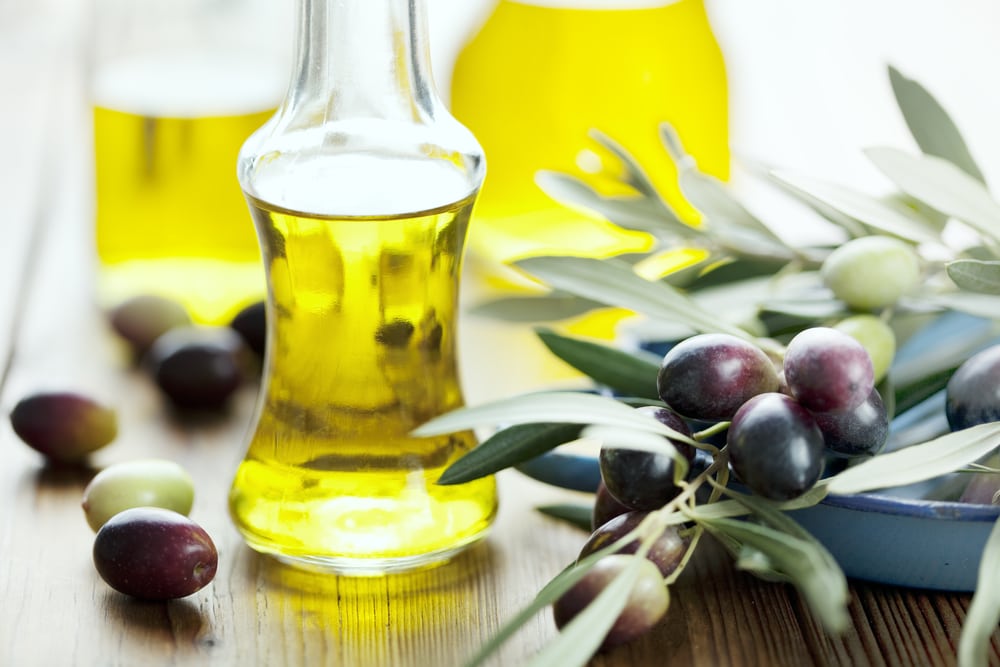How Important Is Olive Oil In A Gout Diet?
The olive, one of the oldest foods known to man is thought to have originated in Crete between five to seven thousand years ago and also regarded as a symbol of peace and wisdom by the Greeks. Many civilizations have also used it not only for food but fuel, timber and medicine. Being a second generation Greek, I know pretty much everything about the Mediterranean diet (eating lots of produce, fish, nuts and whole grains) and the one key ingredient that appears in every dish is olive oil. It’s what makes the Mediterranean diet, it’s the yin and the yang, you can’t have one without the other.
I remember how my grand-mother and mom would have family from our island ship us a couple of tins of olive oil every year, produced from their land and how fruity that olive oil was yet slightly bitter, then felt peppery in the throat once swallowed. That’s how you know if the olive oil is good. After all Greece is known world wide for producing some of the highest quality of olive oil including the strongest, so a quick tip is always look for an olive oil brand produced from Greece at the grocery store.
The benefits of olive oil
Olive oil is a strong anti-inflammatory which its’ compounds include at least nine different categories of polyphenols and more than twenty-four anti-inflammatory nutrients. These compounds can suppress or switch off up to 100 inflammation causing genes. Three quarters of olive oil is fat in the form of oleic acid, a monounsaturated, omega-9 fat, very simply, it’s very good for you! It is also a good source of vitamin E and also provides a great amount of the anti-oxidant beta-carotenes.
As little as 1 to 2 tablespoons of extra virgin olive oil a day has shown significant anti-inflammatory benefits. We all know about that extra virgin olive oil greatly benefits the cardiovascular system, the digestive system, may help improve cognitive function, may increase bone formation, may have many anti-cancer benefits as well as arthritic benefits which does include gout.
Olive leaves and their extracts can also be used, having similar nutrients. In the Mediterranean region it is considered a folk remedy for arthritis and gout. When I do blood tests at my doctor’s office, he always tells me how my HDL is so high and that he rarely sees that in other patients of his, I credit that to my diet which is high in olive oil.
Use cold pressed extra virgin olive oil in all of your cooking and baking instead of vegetable oils, butter or shortening. Oils that have been heated at high temperatures (causing the loss of nutrients) or processing are not only not good for your health but turn stale causing the oil to become rancid, destroying vitamin E in your body which may help control uric acid levels.
In this article from arthritistoday.org we see how a particular study has shown olive oil to reduce inflammation in arthritis patients.
“Further studies revealed that a compound in olive oil, called oleocanthal, prevents the production of pro-inflammatory COX-1 and COX-2 enzymes, the same way NSAIDs work.
“By inhibiting these enzymes, inflammation and the increase in pain sensitivity associated with them is dampened,” says Paul Breslin, PhD, co-author of the study. Researchers found the intensity of the “throaty bite” in an oil is directly related to the amount of oleocanthal it contains. “Stronger-flavored oils from Tuscany or other regions that use the same olive varietal, have the highest oleocanthal levels,” says Breslin.
The olive oil inflammation study’s researchers say that 50 milliliters (ml), which is about 3-1/2 Tbsp., is equal to a 200-mg tablet of ibuprofen. Breslin points out that amount of oil has more than 400 calories – a lot if you add this healthy fat without giving up others. To avoid excess calories, use extra-virgin olive oil in lieu of other fats, such as butter.”[1]
Remember that Ibuprofen or aspirin may cause damage to your kidneys and your stomach, so olive oil is a healthier choice. Another study evaluated patients with rheumatoid arthritis, who were supplemented with olive oil and fish oil supplements. The study concluded that fish oil supplements alone didn’t improve the patients’ condition, that only if used in combination with olive oil did patients show a measurable improvement.
What type of olive oil do I buy?
Extra virgin olive oil may be the more expensive option but you may reap the most health benefits for your joints! Extra virgin means they result from the first pressing of the olives since the olives are physically pressed and not chemically processed preserving their antioxidants and anti-inflammatory compounds. Watch out cause Europe monitors the use of “extra virgin” label and has strict regulations, unlike the US where the wording “extra virgin olive oil” does not guarantee that you are indeed getting extra virgin olive oil. Look for these acronyms either “COOC”, “A.O.C”, “D.O.P”, “D.P.O” or “D.O” on the bottle.
Any of these acronyms or initials provides you with the assurance that the olive oil you are purchasing passed a quality assurance test. Another term to look out for is “cold pressed” which means minimal heating was involved when processing the olives to make to oil, this method provides the strongest nutrient composition. If you see the term “virgin olive oil”, it means the oil resulted from a second pressing of the olives. Avoid olive oils with the terms “pure olive oil”, “olive oil” and any other related term, these are lower quality products.
Store your olive oil in a cool, dark place, out of direct sunlight since the enemies of olive oil are air and sunlight which will cause the oil to lose its’ flavor and antioxidants. Use olive oil in your salad dressings, over vegetables, pasta, cook and bake with it but whatever you do, make sure not to fry with it. That is a big no-no, besides as a gout sufferer you should avoid fried food at all costs if you want to keep uric acid levels healthy.

